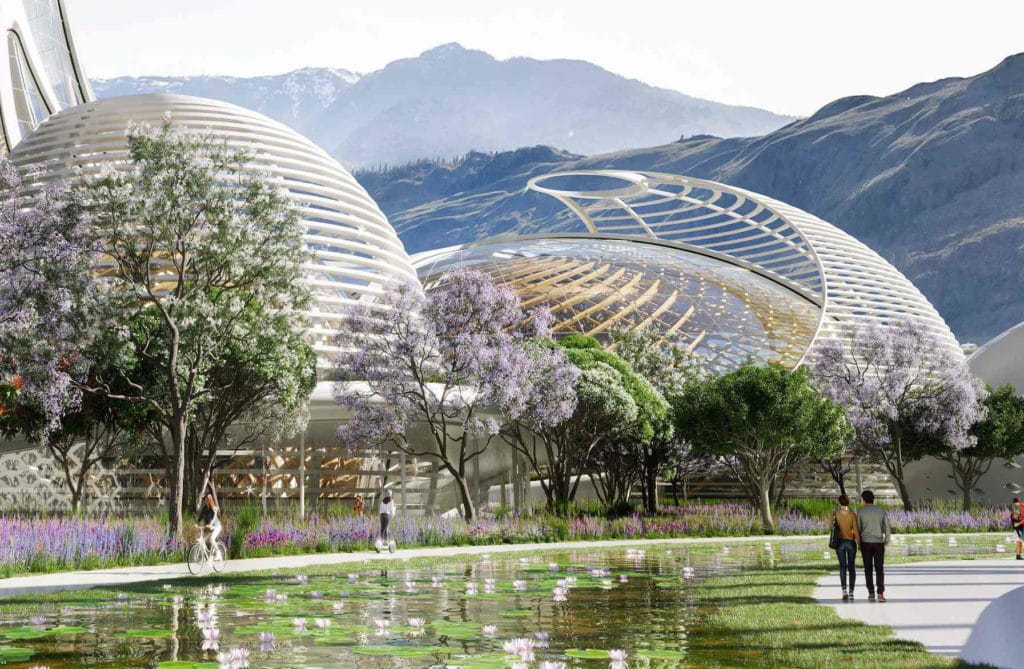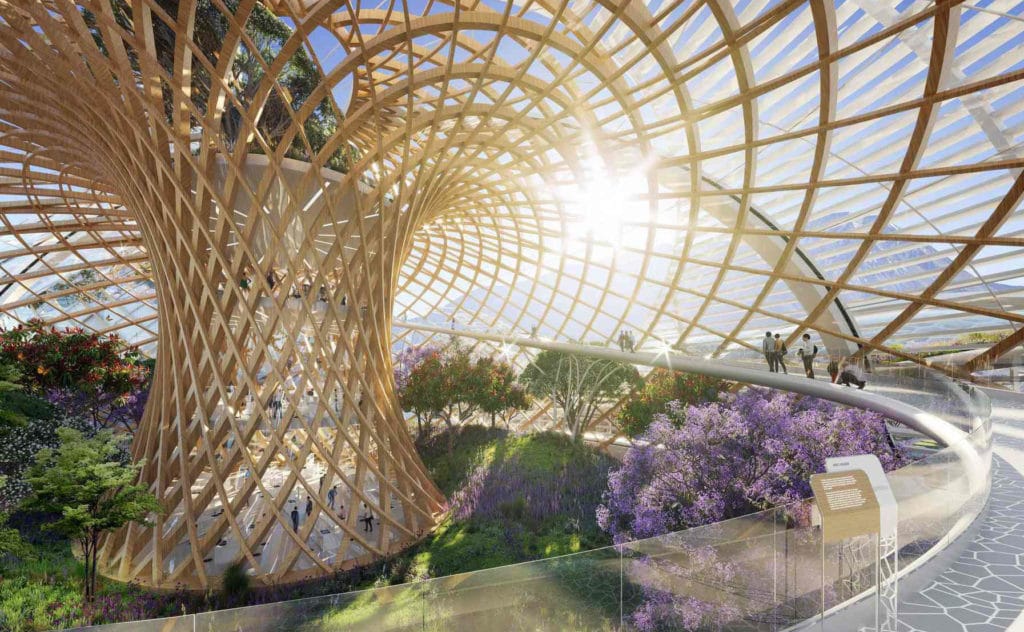Belgium (Brussels)
“Do you remember a time when the sky was filled with birds and bees, and colourful fruit grew from the trees? Did that world cease to exist, or did you simply cease to notice it?”
Welcome to 2050. Ecological disasters caused the disappearance of insect pollinators. Bees, butterflies and their winged friends no longer fly above the planet’s now barren lands. The good news is, decades ago a foreseeing scientist named Beatrice Kukac built a safe haven to preserve remaining pollinators. The place is filled with lush vegetation and the air is buzzing with insects. Enter Pollinator Park.

Welcome to Pollinator Park.
Part dystopia, part hopeful wonderworld, Pollinator Park is an educational and emotionally engaging virtual reality experience developed by the European Commission. Players can walk around the Park and learn about the lives of bees, moths … and humans.
Not many, for example, know that 1/3 of our food as well sizeable parts of our economy depend on the survival of pollinators. Visitors of Pollinator Park are invited to ‘do the shopping’ in 2020, 2030, and 2050, and see how different their breakfast table looks after pollinators have disappeared. The experience is designed to help us reflect on our relationship with nature and the game gives plenty of actionable tips to help build a more pollinator-friendly future.
Take a walk around Pollinator Park ?
During the launch event, Pollinator Park’s writer and Creative Director Yasmin Van de Werf explained that the inspiration came to her while watching Jurassic Park with her son. She realised that pollinators are hard to empathise with because they’re tiny, some of them sting, and unlike dinosaurs, they lack the mystery of extinct species. The story of researcher and bee lover Beatrice served then as a storytelling translation to close the empathy gap between humans and pollinators.
The designer of the gorgeous Pollinator Park setting is Paris-based archifamous ‘archibiotect’ and solarpunk favourite Vincent Callebaut, whose mission is “to reconcile human beings with natural ecosystems.” His elegant, nature-inspired bee paradise design can easily trick players into thinking that they’re actually smelling the flowers they ‘pick’ and ‘pollinate’ as part of the experience. And creates a stark contrast with the arid landscape outside the solar-powered Pollinator Park domes.

A solarpunk paradise.
Unfortunately, human activity isn’t doing pollinators any favours and their population is in steep decline. Hans Bruyninckx, Director of European Environment Agency, said about the game:
“Pollinator Park may seem apocalyptic but an ecosystem is like a game of Jenga, we’re continuously pulling away pieces of that complex structure. If we keep losing species and habitats, Pollinator Park isn’t that unrealistic.”

Walk around possible futures.
People living in the current decade can enter Pollinator Park for free using a web browser or a VR headset. The experience will soon be available in several European languages. European Commissioner for Environment, Oceans and Fisheries Virginijus Sinkevičius says:
“It’s an entertaining educational virtual reality unfortunately showing what future awaits us if we lose pollinators. This is what the current trends predict may happen by 2050. We invite everyone to Pollinator Park because we hope that everyone becomes aware of the issue.”
? Bee lover? Test your knowledge with our AtlasQuiz below (we hid one of the answers in the article!)
AtlasAction: You can enter Pollinator Park online and live the virtual experience in various European museums and institutions, like Barcelona’s Natural Science Museum.
Project leader
EU Commission
Support the Atlas
We want the Atlas of the Future media platform and our event to be available to everybody, everywhere for free – always. Fancy helping us spread stories of hope and optimism to create a better tomorrow? For those able, we'd be grateful for any donation.
- Please support the Atlas here
- Thank you!

